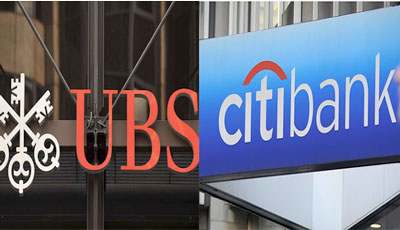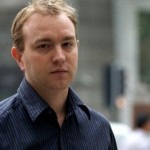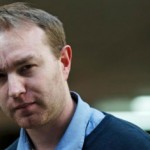Libor Case Comes to Trial

U.K. prosecutors to contend Tom Hayes led conspiracy to manipulate rates
Is a 35-year-old mathematician the modern face of financial crime?
In a trial starting Tuesday in London, British prosecutors will contend that the answer is yes. They are preparing to cast Tom Hayes, a former star trader at UBS AG and Citigroup Inc., as the ringleader of a global conspiracy to manipulate the London interbank offered rate, or Libor.
Mr. Hayes’s expected defense: He is being unfairly singled out for behavior that was widespread all over Wall Street. The argument rests primarily on the fact that his bosses knew what he was doing and sometimes participated alongside him, which explains why he didn’t think what he was doing was wrong.
UBS has pleaded guilty to manipulating Libor and acknowledged that managers were involved. A Citigroup unit in Japan was punished for rate rigging in 2011. At the time, the bank apologized to clients, but it didn’t formally admit to wrongdoing or address whether people senior to Mr. Hayes were involved. Citigroup hasn’t entered into settlements with U.S. or British regulators.
“This goes much much higher than me,” Mr. Hayes said in a 2013 text message to The Wall Street Journal, his only public comment on the case aside from entering his not-guilty plea. Libor underpins interest rates on trillions of dollars of mortgages, loans and other products.
The trial is taking place as U.S. and European banks continue to get in trouble for their financial misdeeds, in particular the attempted manipulation of important markets and financial benchmarks. Last week, five banks were fined a total of about $5.6 billion for trying to rig currency markets, an offense that they admitted committing.
Despite the record-breaking fines meted out against financial institutions, law-enforcement authorities in the U.S. and U.K. are under public pressure to hold individuals accountable. In the U.S., Justice Department officials said last week that they are continuing to investigate individual traders for possible crimes in the foreign-exchange case.
Mr. Hayes, who has been charged with fraud and collusion in both the U.S. and U.K., is one of more than a dozen former traders and brokers who have been charged in one or both countries for Libor-related offenses. Another handful of former traders at major banks were named by the U.K’s Serious Fraud Office as Mr. Hayes’s co-conspirators, but haven’t been indicted.
All of them were low- and midlevel employees. No senior executives have been criminally charged.
Mr. Hayes is the first person to go on trial for alleged Libor manipulation. If convicted, he could face up to a decade in prison. His trial will be followed this fall by the trials of several former brokers who allegedly helped Mr. Hayes rig interest rates. The brokers have all pleaded not guilty.
Mr. Hayes’s trial is expected to last up to 12 weeks. Mr. Hayes himself is likely to spend more than a week on the witness stand. Other witnesses are expected to include UBS and Citigroup executives.
Public interest in the case is expected to be high. The Southwark Crown Court, where the trial is being held on the south bank of the River Thames, has been issuing tickets to the event in advance. Some routine pretrial hearings have been so jammed with spectators that they have had to be relocated to larger premises.
The trial represents a key test for the Serious Fraud Office, a chronically underfunded agency whose officials acknowledge they are struggling to prove their crime-fighting mettle. The SFO’s director, David Green, has been personally involved in details and key decisions involving the case.
As a trader in London and Tokyo, Mr. Hayes was gifted but socially awkward, according to people who knew him at work. Colleagues nicknamed him “Rain Man” and “Kid Asperger.” At one office Christmas party, he sat in the corner reading a book. Even as he earned millions of dollars, he shopped for secondhand clothes on eBay. He currently lives in a village outside London with his wife and young son.
The defendant isn’t the only interesting character. The judge presiding over the case,Jeremy Cooke, is a former professional rugby player who, after years as a trial lawyer, became a judge in 2001, the same year he was knighted. Mukul Chawla, the prosecutor handling the case for the Serious Fraud Office, is a hotshot fraud lawyer who regularly tweets about the late nights he spends working in his legal chambers.
Source: WSJ – Libor Case Comes to Trial






























Fastidious response in return off this matter with reeal
arguments and explaining all concerning that.